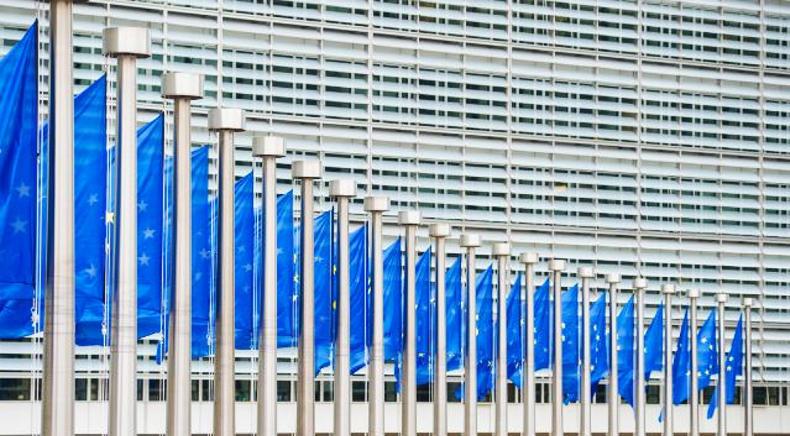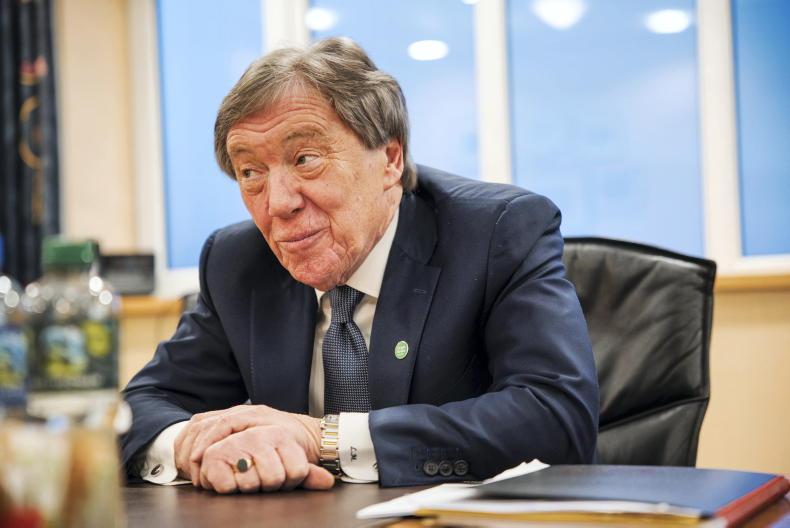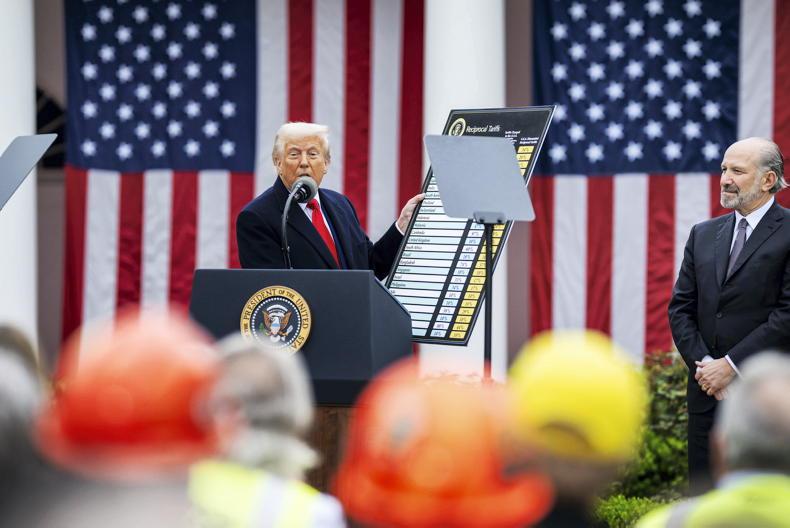On Friday evening at 11pm, the UK will no longer be a member of the EU. It is the time everything changes and yet nothing changes.
That is because the EU will move into a transition period until the end of this year, during which the EU and UK can trade as if the UK was still a member.
From now on, the UK will have no role in formulation of EU policy and while that is important, it isn’t something that is visible to ordinary citizens.
They have also passed the point of no return on membership – right up until their departure, the UK could have had a change of mind and stayed in the EU. Now, if they wanted to become a member again, they would have to apply to rejoin and that is something that is unlikely to happen.
What Brexit looks like
In practical terms, everything remains the same until the end of the year, with the outward-facing changes limited to a lights show in London and the lowering of the flag representing the UK from one of the poles outside the Berlaymont, leaving just 27 flying from this point onwards.
Even in Ireland, it hasn’t captured voters’ attention
The fact that people won’t feel any changes before the transition period ends is a large part of the reason for Brexit fatigue, both in the UK and across the EU.
Even in Ireland, it hasn’t captured voters’ attention despite the best efforts of the outgoing Government. This is because everyone knows someone that has experienced delays in hospital or is struggling with housing costs, but Brexit is just something that has been talked about for almost four years now and even when it comes to pass, it will be business as usual for the rest of this year at least.
Impact of Brexit
The real deadline for impact on farmers and citizens in general is the point the UK leaves the transition arrangement. By that point the plan is that there is a future trading relationship deal in place, but the time scale for achieving this is incredibly short.
In the Irish Farmers Journal we have explored the types of agreement that might be reached and no matter how comprehensive an agreement is, it won’t replicate the seamless trading of the single market.
Failure to reach agreement of any sort would mean trading under WTO rules, the standard basis for global trade.
Future trade
This is how all trade used to take place and the idea of the EU and other trade deals between countries was to improve on WTO terms.
In practice, this meant reduction or indeed removal of tariffs and a regularisation of production standards, which reduces the need for import inspections and, in the case of the EU single market, inspections between members are eliminated altogether.
This is where the risk lies for Irish farmers. A default to WTO terms for beef would mean a tariff that would price Irish beef out of the UK market.
The UK could also decide to reduce or eliminate tariffs, but, if it did, it would be available to all comers. That means the UK market would be open to the lowest cost producers in the world and the market value for Irish and indeed UK farmers would be collapsed.
Read more
Trade deal: avoiding empty shelves
Options for EU-UK trade deals after Brexit
EU deal with UK will be damage limitation
Brexit countdown: battle for product standards
On Friday evening at 11pm, the UK will no longer be a member of the EU. It is the time everything changes and yet nothing changes.
That is because the EU will move into a transition period until the end of this year, during which the EU and UK can trade as if the UK was still a member.
From now on, the UK will have no role in formulation of EU policy and while that is important, it isn’t something that is visible to ordinary citizens.
They have also passed the point of no return on membership – right up until their departure, the UK could have had a change of mind and stayed in the EU. Now, if they wanted to become a member again, they would have to apply to rejoin and that is something that is unlikely to happen.
What Brexit looks like
In practical terms, everything remains the same until the end of the year, with the outward-facing changes limited to a lights show in London and the lowering of the flag representing the UK from one of the poles outside the Berlaymont, leaving just 27 flying from this point onwards.
Even in Ireland, it hasn’t captured voters’ attention
The fact that people won’t feel any changes before the transition period ends is a large part of the reason for Brexit fatigue, both in the UK and across the EU.
Even in Ireland, it hasn’t captured voters’ attention despite the best efforts of the outgoing Government. This is because everyone knows someone that has experienced delays in hospital or is struggling with housing costs, but Brexit is just something that has been talked about for almost four years now and even when it comes to pass, it will be business as usual for the rest of this year at least.
Impact of Brexit
The real deadline for impact on farmers and citizens in general is the point the UK leaves the transition arrangement. By that point the plan is that there is a future trading relationship deal in place, but the time scale for achieving this is incredibly short.
In the Irish Farmers Journal we have explored the types of agreement that might be reached and no matter how comprehensive an agreement is, it won’t replicate the seamless trading of the single market.
Failure to reach agreement of any sort would mean trading under WTO rules, the standard basis for global trade.
Future trade
This is how all trade used to take place and the idea of the EU and other trade deals between countries was to improve on WTO terms.
In practice, this meant reduction or indeed removal of tariffs and a regularisation of production standards, which reduces the need for import inspections and, in the case of the EU single market, inspections between members are eliminated altogether.
This is where the risk lies for Irish farmers. A default to WTO terms for beef would mean a tariff that would price Irish beef out of the UK market.
The UK could also decide to reduce or eliminate tariffs, but, if it did, it would be available to all comers. That means the UK market would be open to the lowest cost producers in the world and the market value for Irish and indeed UK farmers would be collapsed.
Read more
Trade deal: avoiding empty shelves
Options for EU-UK trade deals after Brexit
EU deal with UK will be damage limitation
Brexit countdown: battle for product standards









SHARING OPTIONS